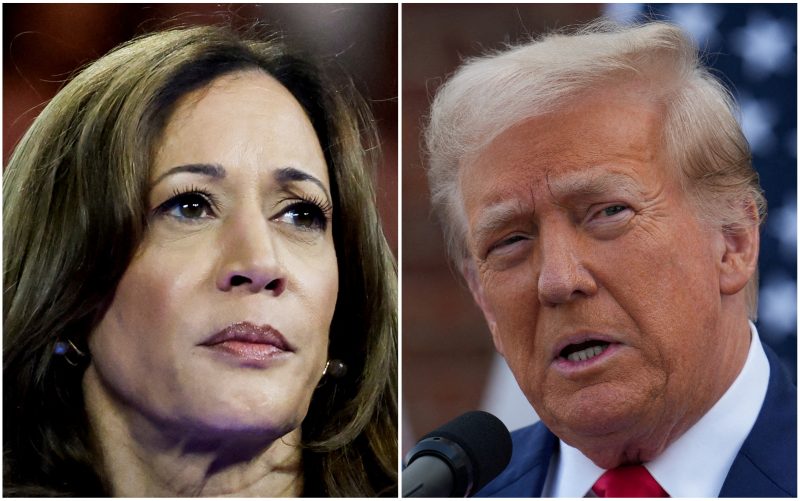
Trump Targets Harris in Desperate Bid for Victory in Close Race
In a bid to maintain his lead in a closely contested presidential race, Donald Trump has sharpened his focus on Kamala Harris, the Democratic vice-presidential candidate. Trump’s strategy of targeting Harris reflects his recognition of her potential to sway voters and energize the Democratic base effectively. The political maneuvering by the Trump campaign underscores the high stakes involved in the upcoming election and the importance of perception and strategy in modern politics.
By redirecting his attacks towards Harris, Trump aims to leverage her vulnerabilities and public perception to weaken the Democratic ticket. Trump has taken to labeling Harris as a “radical” and questioning her competency and credibility, seeking to sow doubt among undecided voters and erode support for the Biden-Harris ticket. This tactic is a classic example of negative campaigning, a common strategy in competitive elections where candidates seek to tarnish their opponent’s image.
However, Trump’s intense focus on Harris also highlights his own vulnerabilities and the challenges he faces in retaining his support base. The decision to target Harris so aggressively suggests Trump’s awareness of the shifting dynamics of the race and the need to consolidate his position by undermining his opponents. The Trump campaign’s tactics also reveal a sense of urgency and the recognition that victory in the upcoming election may hinge on the perceptions and preferences of a few key demographic groups.
While Trump’s efforts to drag down Harris may resonate with his core supporters, they also carry risks. Negative campaigning can sometimes backfire, alienating undecided voters and reinforcing negative perceptions of the candidate who employs such tactics. By fixating on Harris, Trump may be overlooking broader issues and concerns that are driving voter preferences in this election cycle.
In conclusion, the escalating battle between Trump and Harris underscores the intense competition and strategic maneuvering characterizing the 2020 presidential race. As the candidates seek to sway voters and secure their electoral fortunes, the role of perception, messaging, and strategy becomes increasingly crucial. The outcome of the election may well depend on how effectively each side navigates these challenges and resonates with the electorate.
